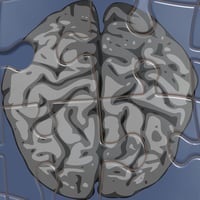Developmentally Adapted Cognitive Processing Therapy Effective for Youth With Abuse-Related PTSD
 |
Although cognitive processing therapy is one of the most extensively studied treatments for adult PTSD, “CPT has rarely been tested in traumatized youth and has not been adapted to the specific needs of young people with a history of abuse,” wrote Rita Rosner, D.Phil., of the Catholic University of Eichstätt-Ingolstadt in Germany and colleagues.
For the study, the researchers randomly assigned 88 adolescents and young adults (aged 14 to 21 years) who were seeking treatment in outpatient clinics in Germany to either the D-CPT group or wait-list group with treatment advice. Those in the D-CPT treatment group completed at least 30 50-minute sessions over the course of 16 to 20 weeks. CPT therapy was adapted for adolescents and young adults with childhood abuse by beginning with a commitment phase to enhance treatment motivation and therapeutic alliance as well as a phase on emotion-management techniques. These were followed by an intense CPT phase (15 sessions in four weeks) to address fluctuating motivation in adolescents. Special consideration to developmental tasks, such as career choice and romantic relationships, was also integrated. Participants in the control group were advised to seek treatment outside the trial until after the three-month follow-up, at which time they received D-CPT.
The primary outcome of PTSD severity was assessed using the Clinician-Administered PTSD Scale for Children and Adolescents for DSM-IV (CAPS-CA) before treatment, at eight weeks, posttreatment, and at a three-month follow-up. Participants in the D-CPT group had a lower posttreatment mean CAPS-CA score than controls (24.7 versus 47.5, respectively). These treatment effects were maintained through the three-month follow up. Secondary outcomes of self-reported PTSD severity, depression, borderline symptoms, behavior problems, and dissociation also showed greater and stable improvement in D-CPT participants.
These results were comparable to effect sizes reported for CPT in adults. However, treatment effects were not noted until the mid-treatment assessment during the high-intensity CPT phase. The authors wrote, “This finding further challenges the need for a stabilization phase or emotion-regulation training before trauma-focused treatment, at least in adolescents with abuse-related PTSD.”
For related information, see the Psychiatric News article “Beyond PTSD: The Complexity of Diagnosis and Treatment for Teens in Child Welfare Custody.”
(Image: iStock/izusek)






